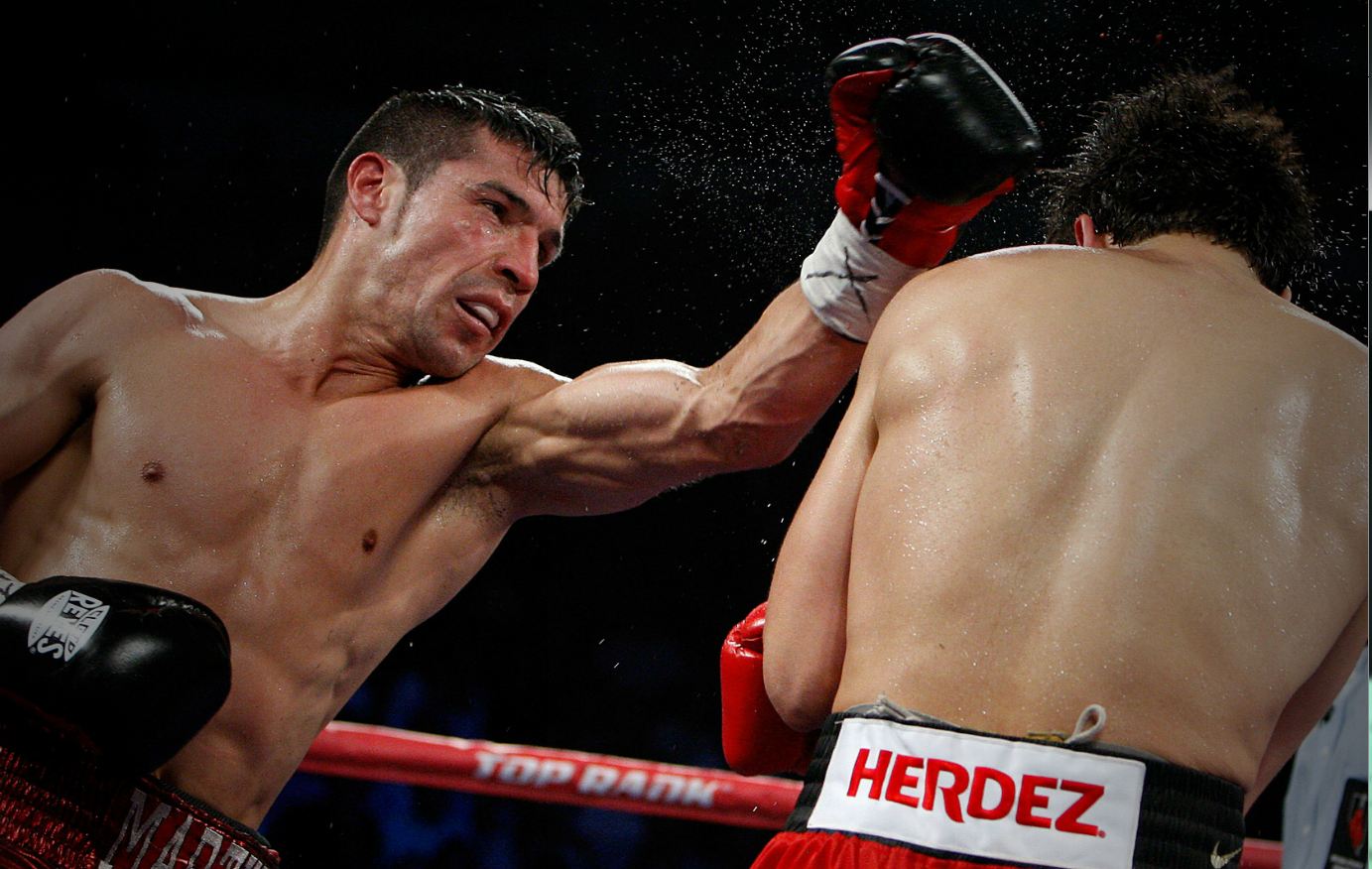In the wake of Sergio Martinez’s wide Unanimous Decision victory over Julio Cesar Chavez Jr. on September 15, a familiar “what if” refrain has been taken up by legions of boxing fans, as in, “What if that were a real 15 round championship fight? Then Chavez would have won!” Unfortunately, this line of thinking entirely misses the point and makes a number of incorrect assumptions.
Boxers train themselves physically and mentally to go 12 rounds. This isn’t a magic number any more than 15 rounds was a magic number — it’s just the standard. If boxers needed to train for 11, 14 or 17 rounds, they would adjust accordingly.
Crying out “what if” at the end of a 12 round fight also makes the odd assumption that one fighter was seemingly clueless as to the length of the bout, while at the same time, the other fighter was banking on it as a survival mechanism.
If a pressure fighter comes on late in a 12 round fight, and runs out of time, then he needed to start earlier. Everyone knew the distance going into the fight — if you wait too long to get started, then that’s on you and your approach.
It’s ridiculous to deduce, for example, that Chavez would have beaten Martinez had they fought in a vintage 15 round affair. The only reason Chavez had Martinez hurt in the 12th was because Maravilla began fighting with a reckless, cocky abandon, forgoing the careful, sharp counterpunching he had been adroitly utilizing all night long, literally winning every previous round.
If Chavez Jr. vs. Martinez was a 15 round fight, Martinez wouldn’t have been showboating like that in the 11th or 12th. He may have done it in the 15th and final round, and maybe he would have gotten caught in the same fashion. More likely, however, is that Chavez would have been the one stopped from the prolonged, one-sided beating he was taking if Martinez had another few rounds to go for the kill.
This specific instance is even more off the wall – Martinez is well known for his stamina and his intense conditioning. Of all fighters that may be better suited to survive longer distances, he’d be the guy.
“But look at all of the drama that we’ve seen in decades past after the 12th round that we can’t see now,” I can already hear people screaming.
What, you’re telling me that when Sugar Ray Leonard came back to stop Tommy Hearns in September 1981, that Angelo Dundee wouldn’t have told his charge, “You’re blowing it, son, you’re blowing it,” after the 10th round, instead of the 12th, if the fight was scheduled for a different distance? And that an all-time great fighter like Leonard wouldn’t have been able to adjust accordingly and get the job done knowing he had only 12 rounds to work with, and not 15?
A fantastic recent example is the epic third match between Israel Vazquez and Rafael Marquez in March 2008. Vazquez was losing going into the 12th and final round — so he came out with a fury, assaulting Marquez from pillar to post, ultimately scoring a knockdown and nearly a stoppage in the process. He ended up winning a narrow Split Decision.
Boxing is the only sport where fans view the spectacle as if the competitor with more momentum at the end of a contest is viewed as either deserving more credit, or as the inevitable winner if the match had lasted longer. The nature of “the hurt business” makes it such, however, it disregards everything which previously occurred, or could possibly occur over a different distance.
If the New York Yankees trailed 11-0 against the Baltimore Orioles going into the 9th inning, and scored 10 runs, then guess what? They still lost 11-10.
The next morning’s papers and all of the fan message boards wouldn’t opine, “Oh no, if the game went to extra innings, the Yankees would have won, look how much stronger they were late in the game!” They lost in the scheduled distance despite having more momentum at the end of a game. That’s just the way it is.
If baseball games were all scheduled for 10 innings, then indeed, maybe the Yankees would have continued scoring more runs after knocking around the Orioles pitching staff as they did. But baseball games aren’t scheduled for 10 innings — they’re scheduled for nine. And championship boxing matches are scheduled for 12, not 15.
The truth is that the “what if” question typically amounts to unhappy fans of a particular fighter wishing for a different outcome.
This article was first published by Jake Emen on Yahoo Sports, October 03, 2012


